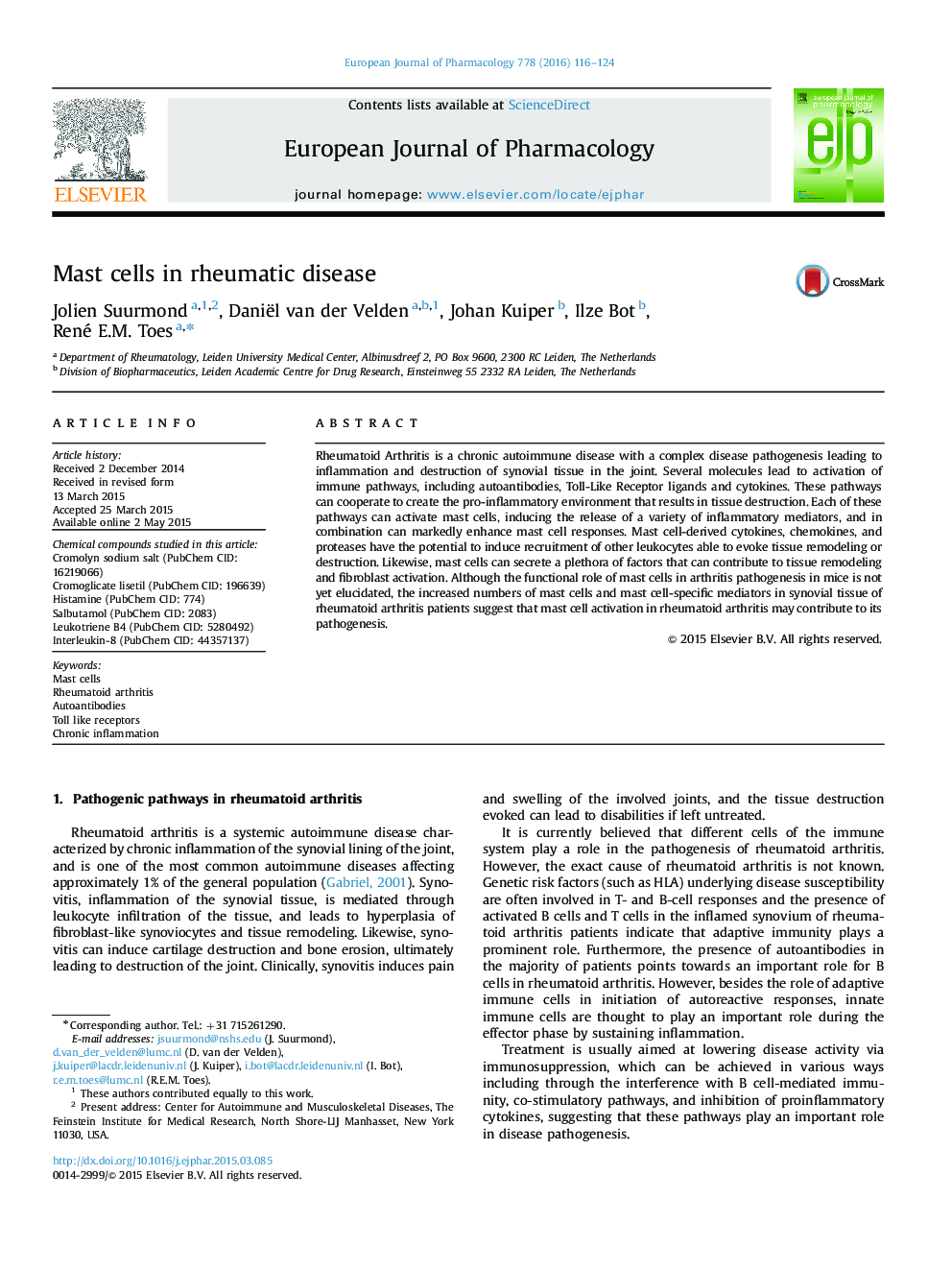| Article ID | Journal | Published Year | Pages | File Type |
|---|---|---|---|---|
| 2531067 | European Journal of Pharmacology | 2016 | 9 Pages |
Rheumatoid Arthritis is a chronic autoimmune disease with a complex disease pathogenesis leading to inflammation and destruction of synovial tissue in the joint. Several molecules lead to activation of immune pathways, including autoantibodies, Toll-Like Receptor ligands and cytokines. These pathways can cooperate to create the pro-inflammatory environment that results in tissue destruction. Each of these pathways can activate mast cells, inducing the release of a variety of inflammatory mediators, and in combination can markedly enhance mast cell responses. Mast cell-derived cytokines, chemokines, and proteases have the potential to induce recruitment of other leukocytes able to evoke tissue remodeling or destruction. Likewise, mast cells can secrete a plethora of factors that can contribute to tissue remodeling and fibroblast activation. Although the functional role of mast cells in arthritis pathogenesis in mice is not yet elucidated, the increased numbers of mast cells and mast cell-specific mediators in synovial tissue of rheumatoid arthritis patients suggest that mast cell activation in rheumatoid arthritis may contribute to its pathogenesis.
